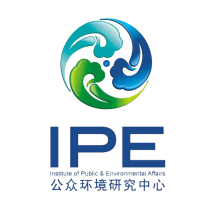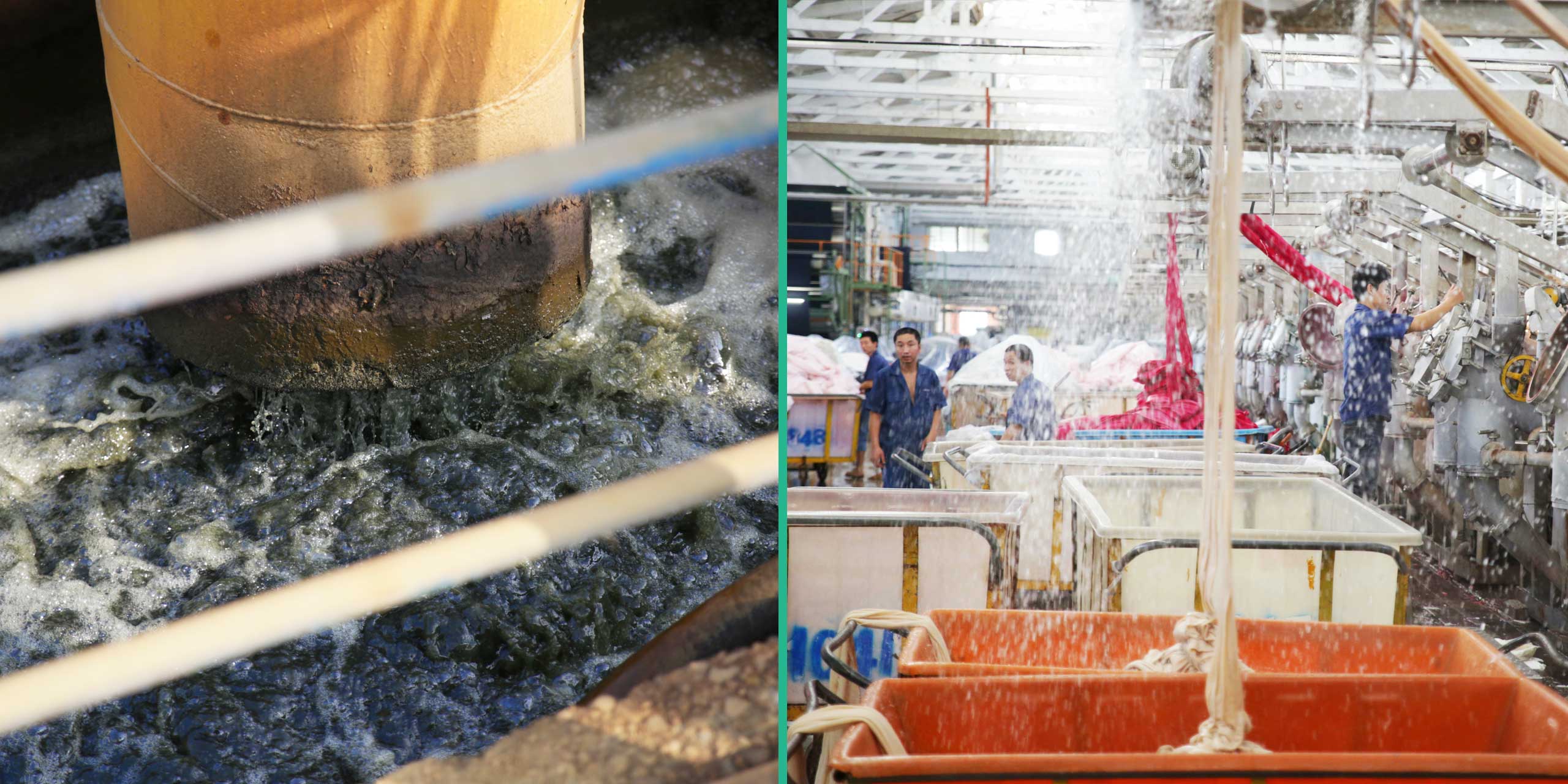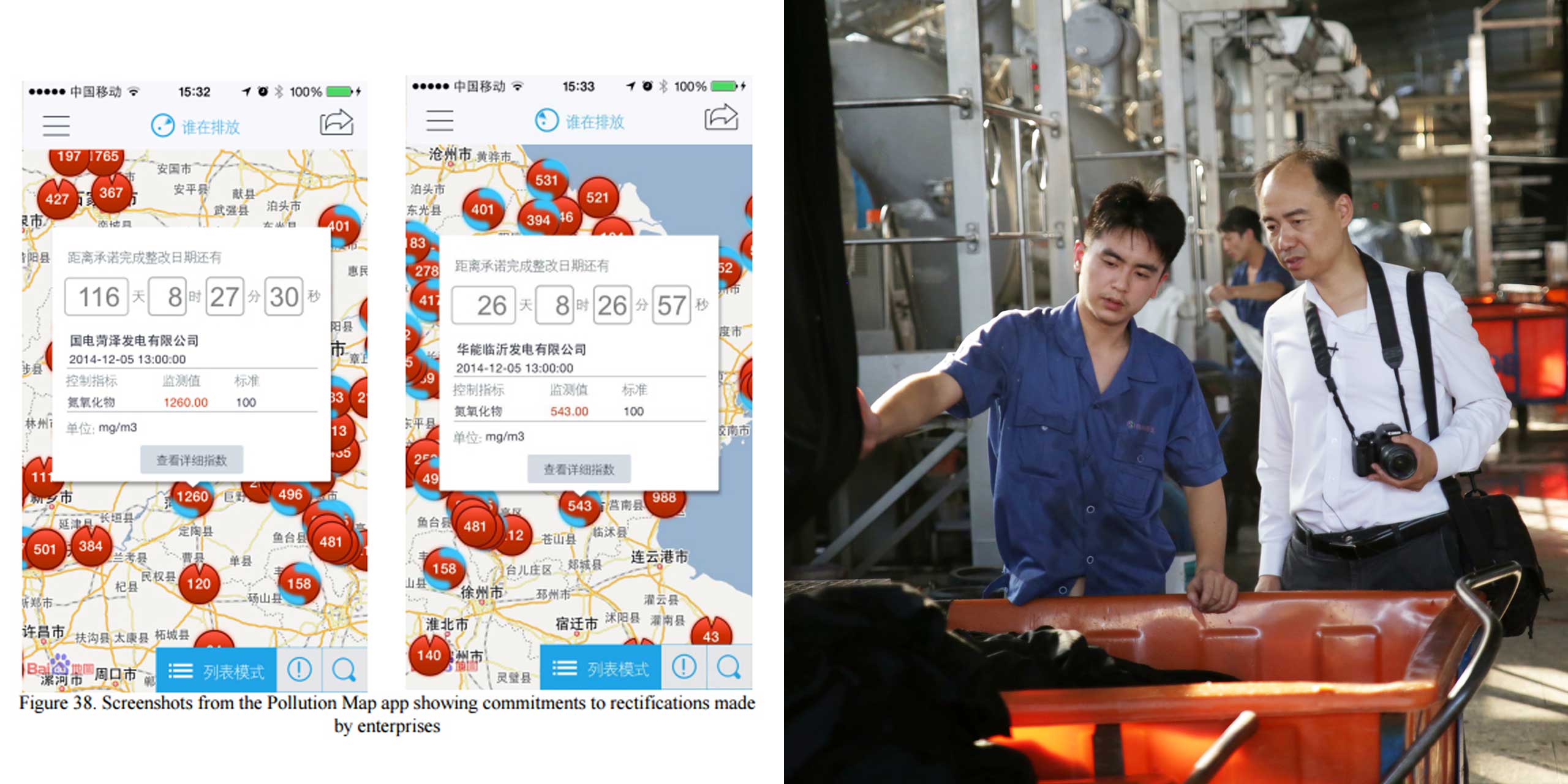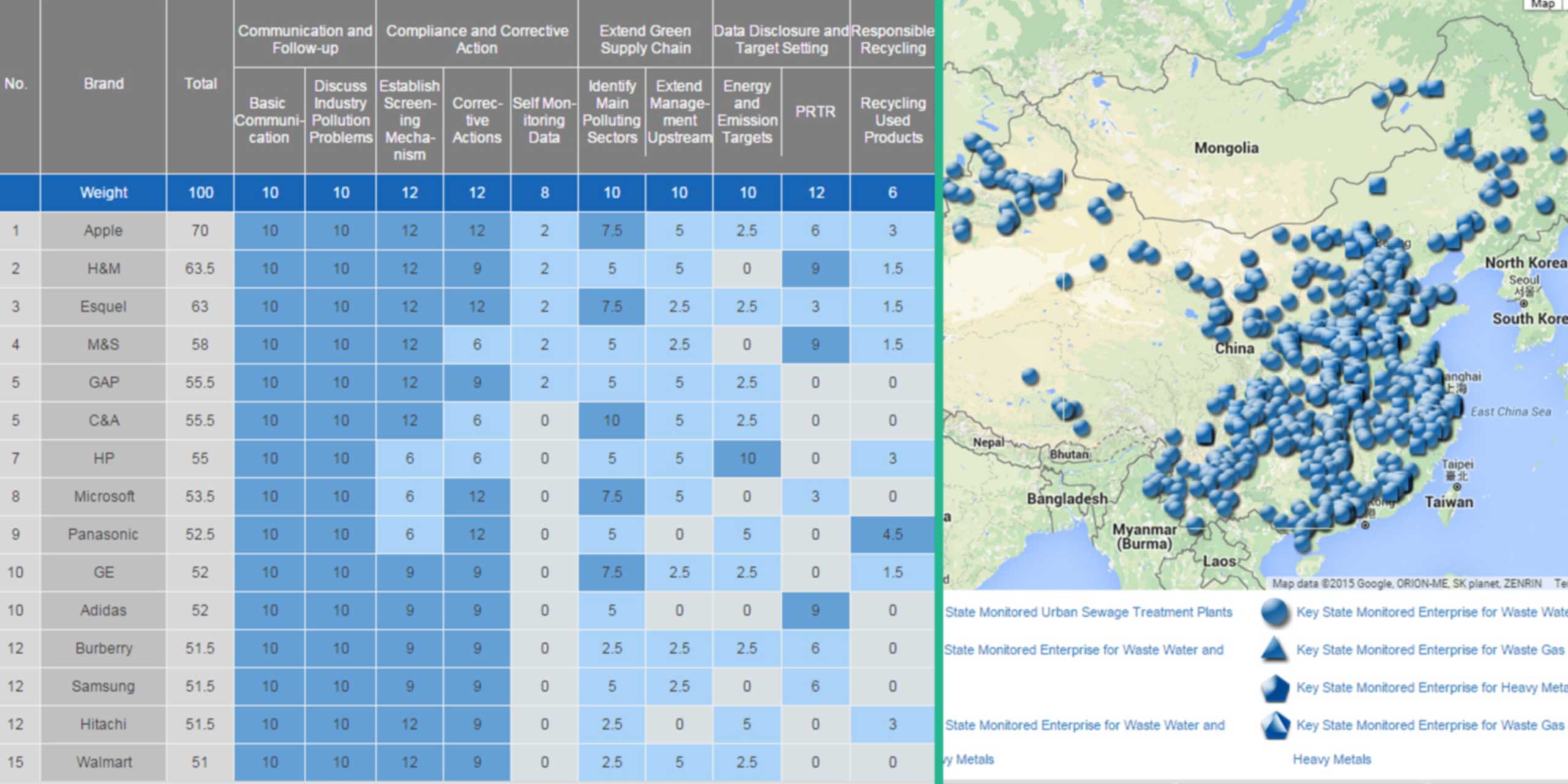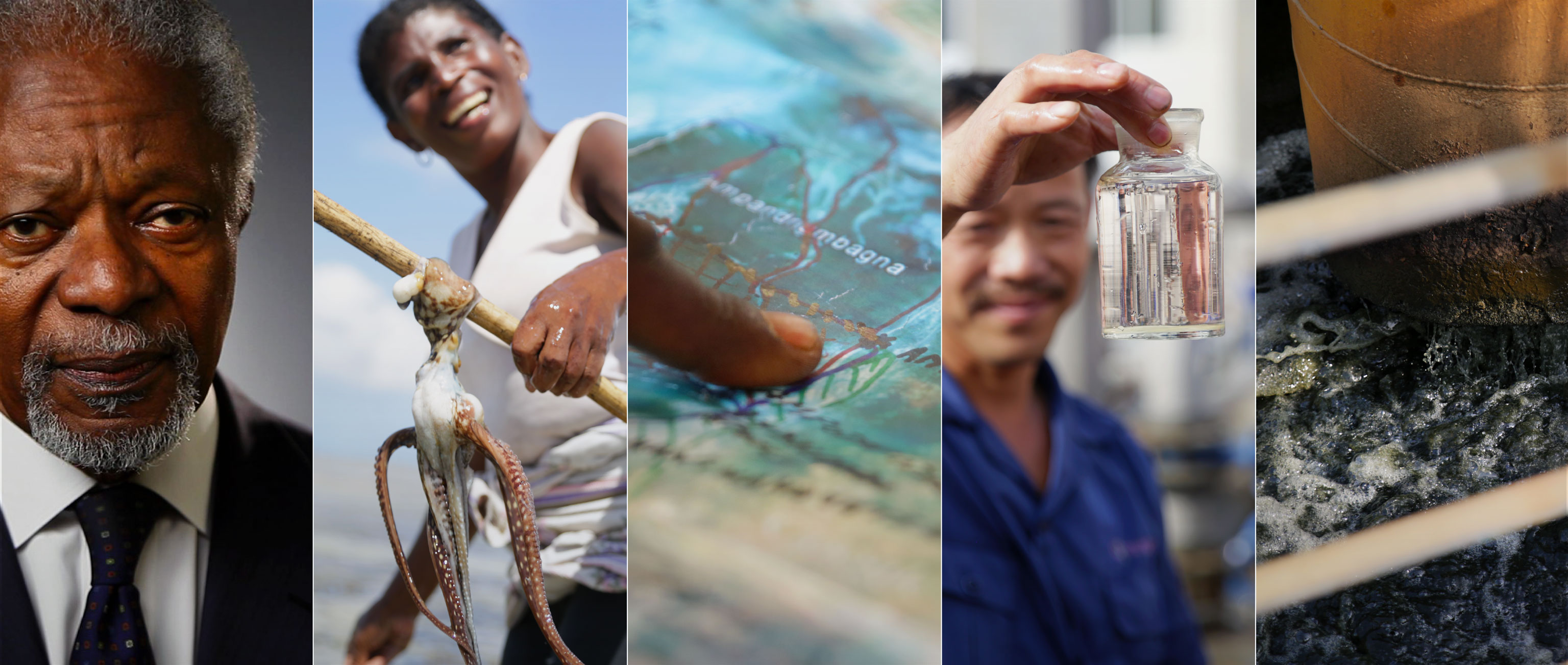The Institute of Public and Environmental Affairs (IPE) is a non-profit organization based in Beijing. They have developed pollution databases to monitor corporate environmental performance and to facilitate public participation in environmental governance. IPE provides a wealth of information about the state of pollution in China, and the companies and factories responsible. Their website allows users to search the environmental records of Chinese manufacturers, locate the companies on a map, and view the status of air and water pollution in their regions. IPE’s aim is to expand environmental information disclosure to allow communities to fully understand the hazards in their surrounding environment, thereby promoting public participation in environmental governance. The IPE is a member of a coalition of Chinese NGOs that promotes a global green supply chain by pushing large corporations to pay attention to the environmental performance of their suppliers. This ‘Green Choice Alliance’ consumer initiative considers the environmental performance of manufacturers and calls on consumers and brands to use their purchasing power to make green choices.

